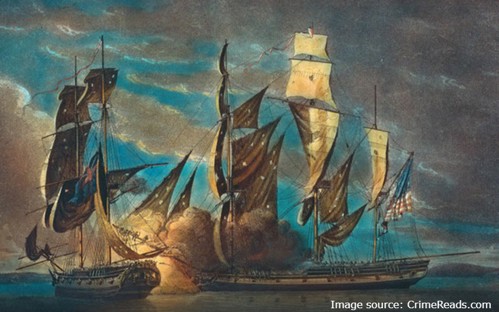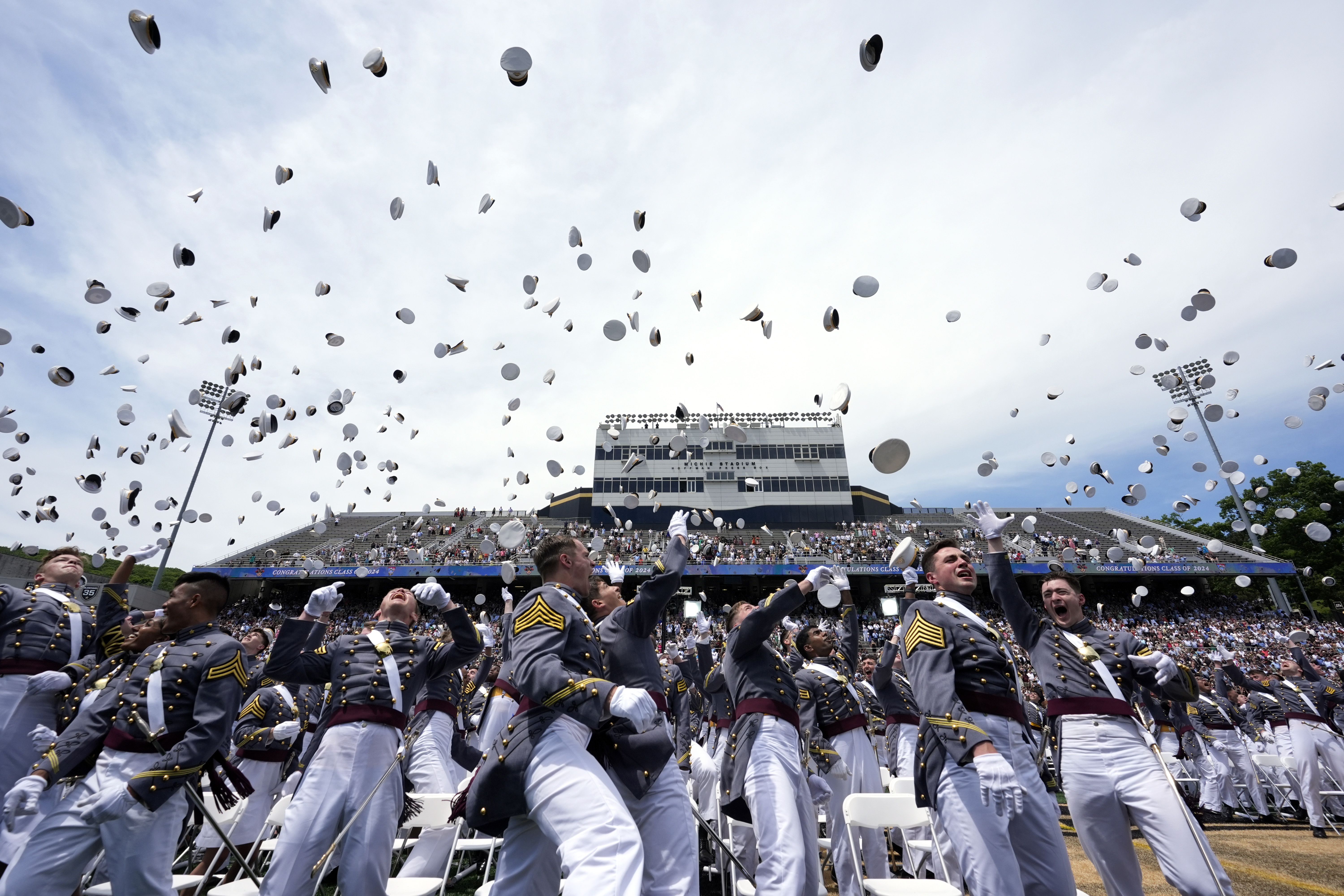 The U.S. has a history of using “privateers” – privately owned ships temporarily commissioned by the government – to supplement Naval forces and carry out attacks in times of war. Nearly 800 vessels were commissioned in the American Revolution and were credited with capturing or destroying some 600 British ships. It’s estimated that privateers inflicted $18 million in damage against the British, just more than $302 million in today’s dollars.
The U.S. has a history of using “privateers” – privately owned ships temporarily commissioned by the government – to supplement Naval forces and carry out attacks in times of war. Nearly 800 vessels were commissioned in the American Revolution and were credited with capturing or destroying some 600 British ships. It’s estimated that privateers inflicted $18 million in damage against the British, just more than $302 million in today’s dollars.
The relationship worked so well that President James Madison signed off on more privateers when the Brits healed up and came back for another round in the War of 1812.
The privateers were typically aimed at British commercial shipping. Then-former President Thomas Jefferson in 1812 predicted the Royal Navy would defeat the U.S. Navy but “our privateers will eat out the vitals of their commerce.”
If Tim Burchett’s (R-Tennessee) “Cartel Marque and Reprisal Authorization Act of 2025” comes to pass, it may eat the vitals out of Mexican drug cartels.
The bill authorizes President Donald Trump to commission privately armed and equipped individuals or groups to seize persons and property of any cartel, cartel member or cartel-linked organization.
The U.S. could use the help, Burchett said on American Family Radio Thursday.
U.S. military actions to combat cartel-led human trafficking and drug trafficking at the southern border would face constitutional issues. Planned actions against cartels could be seen by Mexico, a nation largely friendly to the U.S., as an act of war, and war would have to be approved by Congress. Burchett planned to introduce the bill Thursday.
The War of 1812 is the last known time the U.S. government commissioned privateers. The 1856 Treaty of Paris, which ended the Crimean War, abolished privateering and established new rules for wartime commerce.
Modern challenges call for out-of-the-box thinking. Burchett isn’t the first U.S. official to call for the use of privateers. Retired Marine Colonel Mark Cancian proposed the idea to help against a growing Chinese Naval threat in 2020.
“I just think this frees up the President to bring in some people who know how to conduct themselves in these situations,” Burchett told show host Jenna Ellis.
More recent work of privateers
He was reminded about the potential use of privateers from conflicts involving the United Nations that he left unnamed.

“I remembered years ago, there were some privateers who went after some very bad people. They literally had almost run these bandits out of a country, and then the U.N. pitched a fit. They sent in the U.N. troops and literally millions of dollars later, they had lost ground and lost lives,” Burchett said.
Trump addressed the cartels in his Feb. 1 Executive Order imposing duties on certain goods from Mexico.
“The sustained influx of illegal aliens and illicit opioids and other drugs has profound consequences on our nation, endangering lives and putting a severe strain on our healthcare system, public services, communities, and schools,” the order states.
Mexican drug trafficking organizations (DTOs) are the world’s leading traffickers of fentanyl, methamphetamine, cocaine and other illicit drugs and conspire with transnational cartels and other global partners in their smuggling and distribution, the administration said.
“These operations are often tied to organized crime, and they create pathways for cartel activities to expand into the United States,” the order states.
“These cartels are evil,” Burchett said, noting sex slavery and organ harvesting among the cartels’ activities. “Unfortunately, it's Americans who are paying for this stuff, these dirtbags here. They need a short piece of rope and a tall tree to take care of them and let the Lord deal with them,” he added.
While that isn’t happening, Burchett says his bill provides Trump “some freedom to protect our country and go after some very bad people.”
Any privateers commissioned by the U.S would not be bounty hunters, Burchett explained, and would have to meet certain criteria. Most of them would have pre-existing relationships with private security firms – and there would be some previous training already in play.
“You wouldn’t just say, ‘Hey, do you want to go hunt some bad guys?’” Burchett said.
U.S.-trained Navy Seals and Special Forces individuals are already part of similar groups, according to Burchett.
Letting the President protect Americans
Trump needs room to operate and has already shown what he’ll do if given some freedom, Burchett argued, recalling the U.S. drone strike that killed Qasem Soleimani, an Iranian major general and commander of the Quds Force, on Jan. 3, 2020.
The Pentagon stated that Soleimani was actively developing plans to attack U.S. diplomats and service members in Iraq and throughout the region.
In response to Soleimani's death, the Iranian regime has been involved in assassination plots against U.S. citizens, including Trump. An Iranian regime asset, Farhad Shakeri, was tasked with surveilling and plotting to assassinate Trump, among other targets, according to The Justice Department.
The strike that eliminated Soleimani got Trump in trouble with Congress, Burchett recalled.
“He didn't call the U.N. He didn't call the United States Congress to get their permission. He just took the guy out, which he should have – and he should have the power to do it. They caught him and nobody else. No civilians lost their lives.
“Unfortunately, Congress doesn't have the guts to back up our president a lot of the times,” he said.







